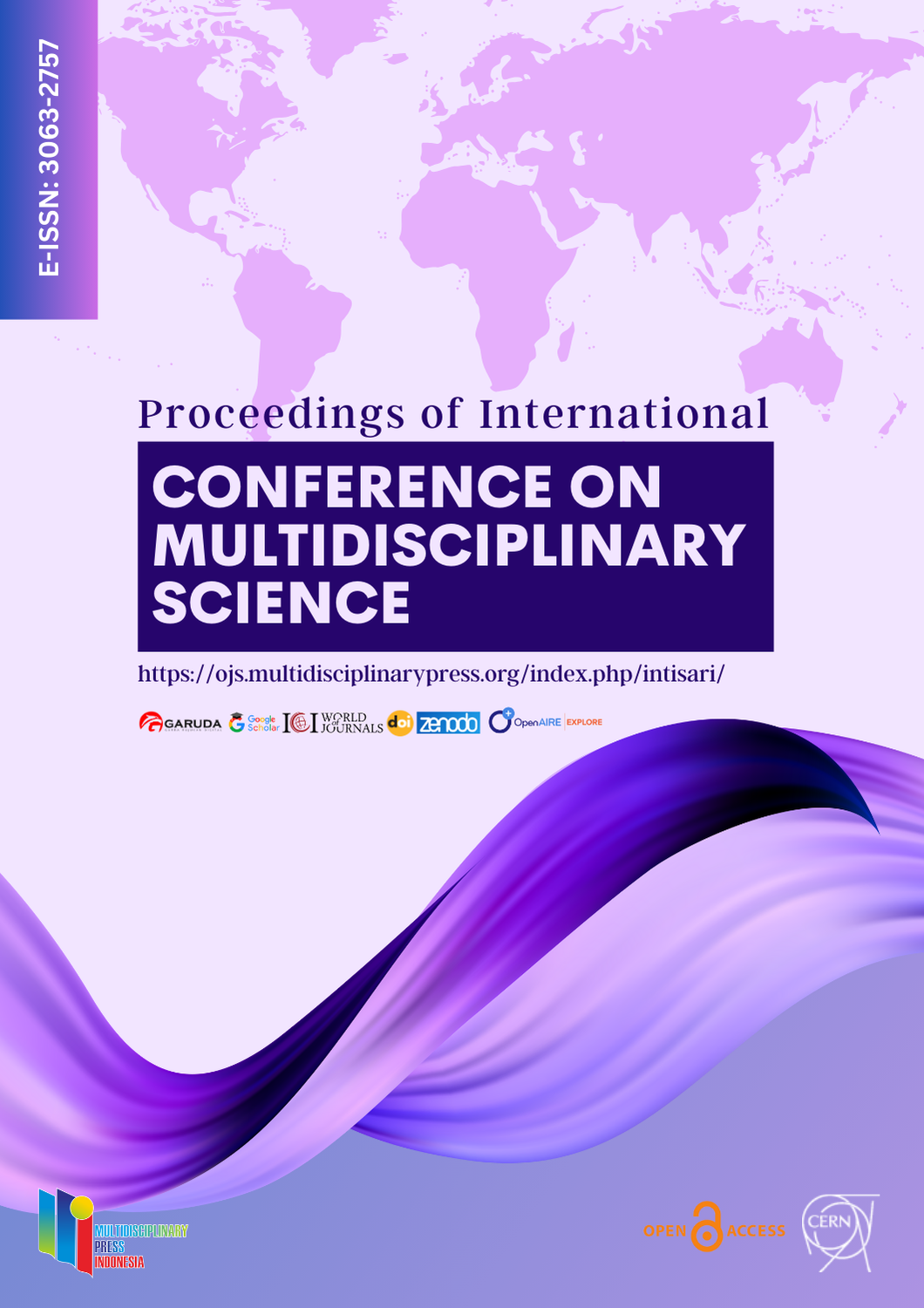Optimization of Employee Performance
Keywords:
organizational culture, work motivation, employee performanceAbstract
This research aims to see the influence between variables and the title Influence of Organizational Culture on Employee Performance Through Work Motivation as an Intervening Variable at the Bpjs Employment Sumbagut Regional Office, Case Study at the Tanjung Morawa and Pematang Siantar Branches. The type of research used is quantitative, this research was conducted on Jl. Sakti Lubis No. 5 Timbang Galung, Pematang Siantar City and Tanjung Morawa Branch Office: Jl. Raya Medan Tanjung Morawa KM 14.5 Bangun Sari Baru Village, Bangun Sari Baru, Kec. Tj. Morawa, Deli Serdang Regency, North Sumatra. The population of this study was 65 employees and the sample of this study was 65 and used a saturated sampling technique. Primary data sources are research data sources and questionnaires are data collection techniques. Phat analysis is a research model. The results of this research are as follows: Organizational culture has a positive and significant effect on employee performance with an original sample value of 0.881 and a P value of 0.000 <0.05. Organizational culture has a positive and significant effect on work motivation with an original sample value of 0.686 and a P value of 0.000 <0.05. Work Motivation has a positive and insignificant effect on Employee Performance with an original sample value of 0.064 and a P value of 0.189. Organizational culture has a positive but not significant indirect effect on employee performance through work motivation with an original sample value of 0.044 and a P value of 0.194.
Downloads
References
Afandi, P. (2018). Manajemen Sumber Daya Manusia (Teori, Konsep dan Indikator). Yogyakarta: Nusa Media.
Chaerudin, A. (2019). Manajemen Pendidikan dan Pelatihan SDM. Sukabumi: CV. Jejak Anggota.
Ghozali, I., & Latan, H. (2017). Partial Least Square: Konsep, Metode, dan Aplikasi menggunakan program WarpPLS 5.0 (Edisi ke-3). Semarang: Badan Penerbit Universitas Diponegoro.
Husnawati, Tentama, F., & Situmorang, N. Z. (2019). Pengujian Validitas dan Reliabilitas Konstruk Hope. Jurnal Psikologi Terapan Dan Pendidikan, 1(2), 128. https://doi.org/10.26555/jptp.v1i2.15136
Janna, N. M. (2021). Konsep Uji Validitas Dan Reliabilitas Dengan Menggunakan PLS. Jurnal Darul Dakwah Wal-Irsyad (DDI), 18210047, 1–12.
Maryati, T. (2021). Budaya Organisasi, Lingkungan Kerja, Kepuasan Kerja dan Kinerja Karyawan. Yogyakarta: PERS UMY.
Nisa, M., Sudarno, S., & Sugito, S. (2021). Moderating Structural Equation Modeling Dengan Partial Least Square Pada Pemodelan Penerimaan Dan Penggunaan Dompet Digital Di Kota Semarang. Jurnal Gaussian, 10(1), 66–75.
Rama, A., & Yusuf, B. (2019). Konstruksi Pembangunan Manusia Islam. Jurnal Universitas King Abdulaziz: Ekonomi Islam, 32(1). https://ssrn.com.abstract=3465601
Sugiyono. (2021). Metode Penelitian Kuantitatif Kualitatif dan R&D (2nd ed.). Jakarta: Alfabeta.
Sulaksono, H. (2015). Budaya Organisasi dan Kinerja. Yogyakarta: Deepublish.
Sumarto. (2019). Manajemen Mutu Sekolah Melalui Pelaksanaan Program Kerja. Jurnal Literasiologi, 2(2), 13-13.
Downloads
Published
How to Cite
Issue
Section
Categories
License
Copyright (c) 2024 Anisa Tahara, Muhammad Isa Indrawan

This work is licensed under a Creative Commons Attribution 4.0 International License.





